R7: Model Development for Risks posed by COVID-19 on U.S. Trade Supply Chain Infrastructure
Formulate a comprehensive risk assessment model, mapping qualitatively participating processes needed to simulate ‘prognosis and diagnosis scenarios’ of social, economic and environmental impacts posed by COVID19 on the U.S. trade supply chain infrastructure.
- One-on-one interactions with experts representing each component of the trade supply chain infrastructure.
- Formulation of risk assessment model using Bayesian Networks.
Generate a risk-guided platform to provide access to datasets, predictive models and experts’ opinions, to produce evidence-based support on the causes and effects posed by COVID19 on the U.S. trade supply chain infrastructure.
- One-on-one interactions with experts representing each component of the trade supply chain infrastructure.
- Generation of the platform for the curation and sharing of the sources of information collected.
- Identify available evidence and gaps of evidence from COVID19risk model: databases, predictive models, and experts and stakeholders
- Set mechanisms for collection of available evidence (at DHS, TAMU, and at all other organizations supporting CBTS projects)
- Collection and characterization of available evidence: databases, predictive models, experts and stakeholders
- Strategy for collection of non-available evidence: databases, predictive models, experts and stakeholders
Generate risk-mitigating strategies based on resiliency and sustainability supported by evidence collection and the associate risk assessment model, to address causes and effects posed by COVID19 on the U.S. trade supply chain infrastructure.
- Education of DHS and participating organizations on the risk-guided platform and the risk assessment model, which will serve as the basis to develop risk mitigating strategies.
- Development of a set of qualitative risk mitigating strategies by all supporting organizations of the project, to be added to the Risk Assessment Model as risk countermeasures. Producing as a result, a Risk Assessment and Management Bayesian Network including the proposed mitigating strategies.
R13: U.S.-Mexico Risk Taskforce to Support the Health Supply Chain Systems for Infrastructure and Workforce Threatened by the COVID-19 Pandemic
Integrate a triple-helix binational taskforce comprised of representatives from academia, industry and government from the U.S. and Mexico, to address the public health impacts of the COVID-19 pandemic on the U.S. – Mexico health supply chain systems for health infrastructure and for the health of the workforce, considering current and emerging regional social, economic and environmental Risks.
- Development and integration of a binational triple-helix binational taskforce comprised of representatives from academia, industry and government, from the U.S. and Mexico.
- The taskforce will identify the public health impacts of the COVID-19 pandemic on the U.S. – Mexico health supply chain infrastructure systems, while accounting for the inherent cultural regional differences, and by considering the current and emerging regional social, economic and environmental Risks.
To develop a data-lake platform concentrating near real-time analytics following a Risk systems approach that can provide strategic information about the evolution of COVID-19 and related current and emerging threats, the state of vulnerability of the health supply chain systems, and the likely impacts a combination of these may cause to society, the economy and the environment.
- To facilitate the identification, characterization and modeling of all participating processes posing an existing or potential threat to the health supply chain systems (e.g. COVID-19, seasonal infectious diseases, geopolitics, climate and weather).
- To facilitate the assessment of the current state of vulnerability of the health supply chain systems (e.g. physical and informational systems for procurement, manufacturing, warehousing, and transportation of health supplies and services).
- To facilitate the assessment of social, economic and environmental impacts that may be produced by a likely combination of threats and states of vulnerability of the health supply chain systems (e.g. fatalities, disabilities, hospitalizations, social sentiment, migration, crime, GDP, unemployment, poverty, pollution, etc.).
Publish a montly U.S.-Mexico COVID-19 risk bulletin to provide scientific, technological and strategic cultural support to secure the operation of supply-chains for U.S.-Mexico trade.
- A monthly U.S.-Mexico COVID-19 Risk Bulletin will be jointly produced, to provide scientific, technological, and strategic cultural support to secure the operation of the U.S.-Mexico health supply chain systems.
- A report card grading scheme will be used to define the status of threats, system vulnerabilities and impacts as these relate to each component of the health supply chain systems.
- The bulletin will include a summary of Lessons Learned on the U.S. and Mexico Health systems, to identify best practices that can support the regional economic development.
- In addition, the bulletin will include a section to populate U.S. and Mexican academic, industrial and government agencies vested on each segment of the health supply chain, with the idea of foster collaborations and exchange information that can be established to support the continuous trade operations between U.S. and Mexico.



